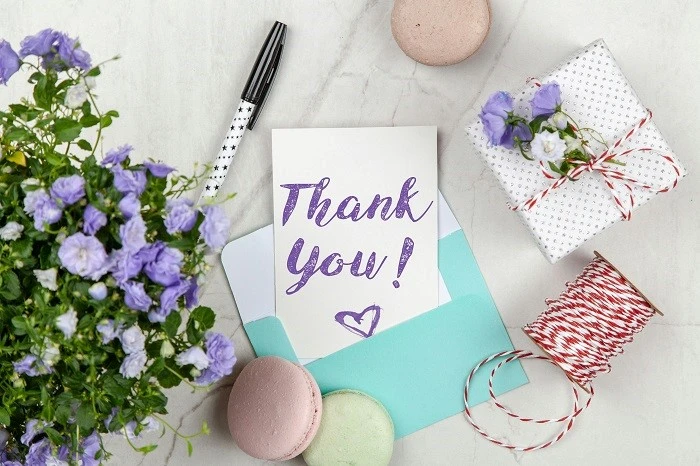In
Chinese culture, gratitude is the best way to show that you are respectful and
grateful to others. It involves honoring the kindness shown to one another by
people. China's most common language, Mandarin Chinese, provides a variety of
methods to express gratitude depending on the situation.
Chinese
culture is famous for politeness, gratitude, and traditions. When communicating
in Chinese, it is important to use a culturally appropriate tone. Because of
this, you need to learn to say "thank you" in Chinese in the most
basic way and in the most appropriate ways, depending on your situation.
In
this article, we have discussed many ways to say thank you in Chinese according
to different situations. Whether you want to thank a family member, friend,
colleague, or group of people, you will find the best responses for yourself.
The
commonly used chinese word for thank you is "Xie Xie". It is a
perfect word to use in informal chats and day-to-day interactions. You
can use this word to express gratitude when you receive any gifts or for day to
day activites like saying thank you to someone for passing you the water at the
table.
You
can use this expression to express your gratitude to friends, relatives, and
colleagues. In day to day activities saying thank you strengthens the
relationships as it is a sign that you appreciate the actions of others.
Moreover, it leaves a positive impression on the other person and motivates them to return your kindness in the future. Using thank you in everyday situations improves your relationships and mood. It is a good habit to show gratitude towards others for their support and kindness.
1Casual Way to Say Thanks to Your Friend
Saying
"谢啦"
(Xiè la) can further lighten the tone and seem jolly in informal situations,
such as online chats with friends. In linguistics, the word "唦"
(la) is referred to as a modal particle. Although this word does not have an
exact meaning, it expresses the mood. It is an easy and informal way to say
thank you to friends.
Another
way to say thank you is "duō.xiè." This means many thanks. Thanking your friends shows that you value their presence and
support. It makes your friends feel appreciated, which strengthens your bond.
This will prevent any possible misunderstandings and ultimately lead to a good relationship. Saying "thank you" is a small but meaningful way to make your friend feel better. It can make people feel respected and appreciated.
When
you need to thank someone, such as your business or workplace partner, you need
to use a formal tone to say thank you in Chinese. Then there are some other
words, such as “Xièxie nín” and “Gǎnxiè nǐ”
which you use instead of the common word Xie Xie.
You
can use these words in formal situations and also when you need to thank
someone elderly. When you say thank you to someone in a formal situation like a
business meeting, it shows that you appreciate the other person’s time, value,
and contribution.
Moreover, it also shows respect for their position and authority. It leaves a positive, long-lasting impression on the other person, which makes them want to interact with you in the future. In addition to it, saying thank you in a formal way can enhance your professional image and credibility.
The
Chinese term to thank a group of people is xiè.xiè dá.jiā which means thanks to
everyone. You might have heard this phrase most of the time after lectures or
presentations. It is important to show gratitude to a group as it shows that
you value their combined efforts and contributions.
Thank
you can develop a sense of unity among the members of a team, encouraging themto work together. Gratitude can contribute to the development of a friendly and
encouraging atmosphere in the group, increasing its enjoyment and
effectiveness.
As you express gratitude to the group as a whole, don't forget to recognize the individual contributions made by each member. This can raise the spirits of group members and encourage continuous involvement.
In
contrast to western culture, Chinese culture has a totally different approach
on receiving compliments. It is not considered acceptable in Chinese to express
thank you while receiving a compliment. It would be viewed as arrogant or
pretentious to do so.
If your Chinese is good enough, you should try to turn down praises and explain why they are incorrect. It's important to do your best to return the favor whenever someone appreciates you. Although accepting compliments is important Chinese culture generally promotes modesty. In Chinese culture it is a good approach to avoid attention.
Chinese
culture appreciates gratitude. There are a lot of ways to say thank you in
Chinese, depending on the situation. You can use common words to say thank you
in everyday situations, or you can use a casual tone to show gratitude to a
friend for their support.
But
when you need to appreciate the efforts and support of your business partner of
elders, you need to use a formal way to say thank you. In the same way, there
is also a way to thank a group collectively for their efforts.
Q. How do you say goodbye in Mandarin?
Ans:
再见
(Zàijiàn) is a common word used to say goodbye in Mandarin.
Q. How do you say you're welcome in
Chinese?
Ans:
不客气
(Bù kèqì) is a common way to say you're welcome in Chinese and Mandarin.
Q. How to say on in Chinese?
Ans:
在(Zài)
is a word used to say on in Chinese.




Want to add a comment?